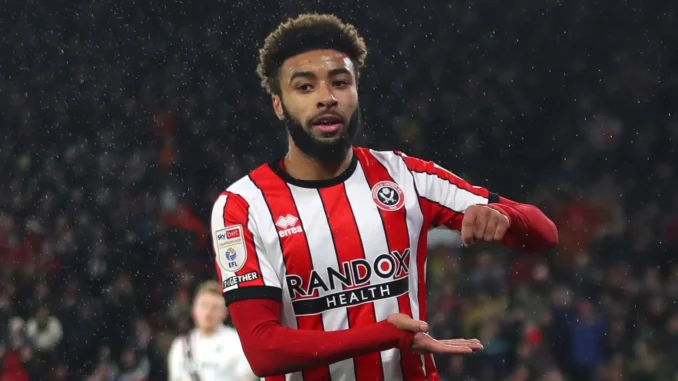
Few footballers can claim to have worn both red and blue in Sheffield, but Leon Clarke is one of the rare names to have represented both Sheffield United and Sheffield Wednesday. His first stint in the Steel City came with Wednesday after a move from Wolverhampton Wanderers in January 2007. However, his time at Hillsborough was far from memorable—over three and a half years, he found the net only 18 times in 87 appearances. Following the club’s relegation to League One in 2010, Clarke was released, marking the end of an underwhelming chapter.
In the years that followed, Clarke became something of a journeyman, playing for several clubs including Queens Park Rangers, Swindon Town, Charlton Athletic, Coventry City, and Bury. Then, in the summer of 2016, he made a surprising return to South Yorkshire—this time joining Sheffield United. His first season with the Blades was disrupted by injuries, limiting him to just seven goals in 24 appearances. Still, United triumphed that season, winning the League One title, even if Clarke’s impact seemed modest at the time.
Expectations for Clarke were not especially high heading into the Championship, and many saw him as a squad player rather than a key figure. But Clarke defied those doubts by delivering the best season of his career. One match in particular would cement his cult hero status at Bramall Lane—an unforgettable performance against Hull City that sent shockwaves through the division.
It was November 2017, and Sheffield United were flying high in the Championship, sitting third in the table after a fantastic start to the campaign. Hull City, on the other hand, were struggling in 18th place following their drop from the Premier League, and pressure was mounting on manager Leonid Slutsky. Despite United’s strong form, Hull took an unexpected first-half lead at Bramall Lane thanks to a long-range strike from Kamil Grosicki. The visitors held onto that advantage at the break, even after Clarke was twice denied by Allan McGregor.
But the second half told a different story. Clarke came out firing, scoring four goals in just 35 minutes to completely turn the game around. His explosive performance not only lifted the Blades back into the automatic promotion spots but also made him the first United player to score four in a single game since Keith Edwards in 1983. After the match, manager Chris Wilder hailed Clarke as “outstanding,” commending his display as “first class.”
While the night was one of celebration for Sheffield United, it marked another low point for Hull. The heavy defeat further deepened their woes, and just four games later, Slutsky was dismissed after a draw with Sheffield Wednesday left them perilously close to the relegation zone.
Clarke’s four-goal haul against Hull was more than just a personal highlight—it kickstarted a remarkable run of form. He followed it up with goals against Burton Albion and a hat-trick in a thrilling 5-4 defeat to Fulham. By the end of November, he had scored nine goals in just four matches, capping the month with a strike against Birmingham City. That blistering form helped him finish the season with a personal-best 19 goals in 39 appearances, surpassing his previous tally of 18 goals at Bury in 2015-16. His efforts earned him a well-deserved spot in the PFA Championship Team of the Year.
Despite the early promise, United couldn’t sustain their promotion push and ended the season in 10th place. As Wilder rebuilt the squad over the summer, Clarke began to fall down the pecking order. He managed only three goals in 26 games during the first half of the 2018-19 season before being loaned to Wigan Athletic. Unfortunately, his time there yielded just three goals in 15 games.
Back at United, the team achieved promotion to the Premier League without Clarke playing a major role. Though transfer-listed upon his return, he remained with the club but featured only sparingly—making just five appearances during the 2019-20 season. At the end of that campaign, his contract expired, and he was released.
While the latter part of Clarke’s time at Bramall Lane was subdued, he’ll forever be remembered for that unforgettable 2017-18 season—and especially the night he tore Hull City apart. Having announced his retirement in May at the age of 40, Clarke leaves behind a legacy defined by resilience, redemption, and a night that made him a Sheffield United cult hero.
Leave a Reply